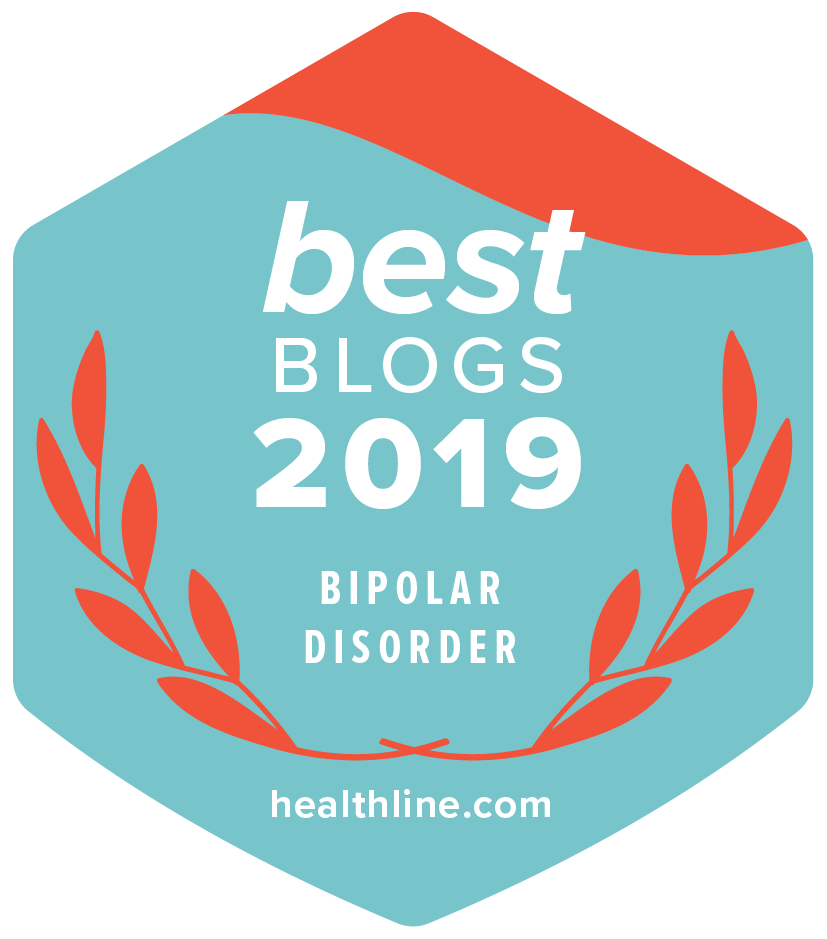
I’ve been suicidal thousands of times over the past 20 years. I know, that is a shocking sentence! My first suicidal episode was in 1983. My most recent suicidal episode was two weeks ago. I’ve been depressed all of my adult life off and on and the mania… well, let’s just say that for many years I let my mania slide a bit due to how much I got done when the euphoria was raging. I started having dysphoric manic episodes later in life and as I’ve matured, the anxiety is much worse. You would think this would all get me down, but I can be honest with you and say that when I focus on managing this complicated illness and truly focus on having a stable life, I am usually a happy person.
This was not alway the case. I was very sick for many years and never thought I would find relief, but I did. I’m interested in you. How much happiness can you find in life when the bipolar is a regular companion? I want to share what I do to find happiness and stability despite my daily mood swings. Maybe my 20 years of managing this illness can help you or a loved one keep going when hope feels impossible. I’ll start with my mindset.
I learned to separate my real personality from bipolar. I didn’t know who I was for a long time as I have rapid cycling and my stable self rarely stayed around for long. So I went looking for my SELF. Who was I when not depressed, manic, anxious or psychotic? The results surprised me. I found that I was goofey, laid back and not overly concerned with the behaviors of others. My bipolar symptoms created an opposite persona and for many years I thought I was weepy, lonely, obsessive and suspicious or out of control drunk and man crazy. Nope. It was the illness. I think of it this way- how can we know what stability feels like if we don’t figure out who we are outside of bipolar? My first challenge for you is to find your real self and then make that your goal in life. This is your baseline and will help you know when you are sick. For example, when I get the feeling that everyone is out to get me and life is hard, I know that this is not my real self. This is illness. It means I have to stop what I’m doing and treat bipolar. It doesn’t mean I send a mean message to someone I feel is harming me! This helps me stay focused on management instead of self flagellation for behaviors I find embarrassing in myself.

Next, I focus on relationships with stable people who can show you how the other side lives. I can’t be around a lot of ill people. It triggers my illness. Instead, I cultivate relationships with incredibly stable people. What does stability look like in others? They are fair, open minded and they rarely change how they act. Consistency is key. Then, I started asking questions. One of my closet friends is my litmus test for the emotional lives of people without bipolar. I’ve learned that they of course get upset, but not like we do.
Stable people teach me how to determine if what I am experiencing is a normal emotional reaction to an event or a bipolar reaction.
For example, I watched a friend go through a horrific breakup. She didn’t get suicidal, didn’t think of harming herself or others and didn’t stay sad for a few years as I have done after a breakup. She was in pain, but it was within a realistic reaction to the situations. Through her, I have also learned what ecstatic happiness looks like vs. euphoric mania and how people deal with losing a job, moving and traveling. Oh wow, they do NOT go through what we go through. This helps me determine when I need to process real emotions such as grief or jealousy versus when I need help for bipolar disorder.
I can’t tell you that life is easy when you have bipolar, but I can tell you that it can get a lot easier. I know what makes me sick. I know who makes me sick. I know what meds work and don’t work. I know my SELF. This is my goal for you as well.





